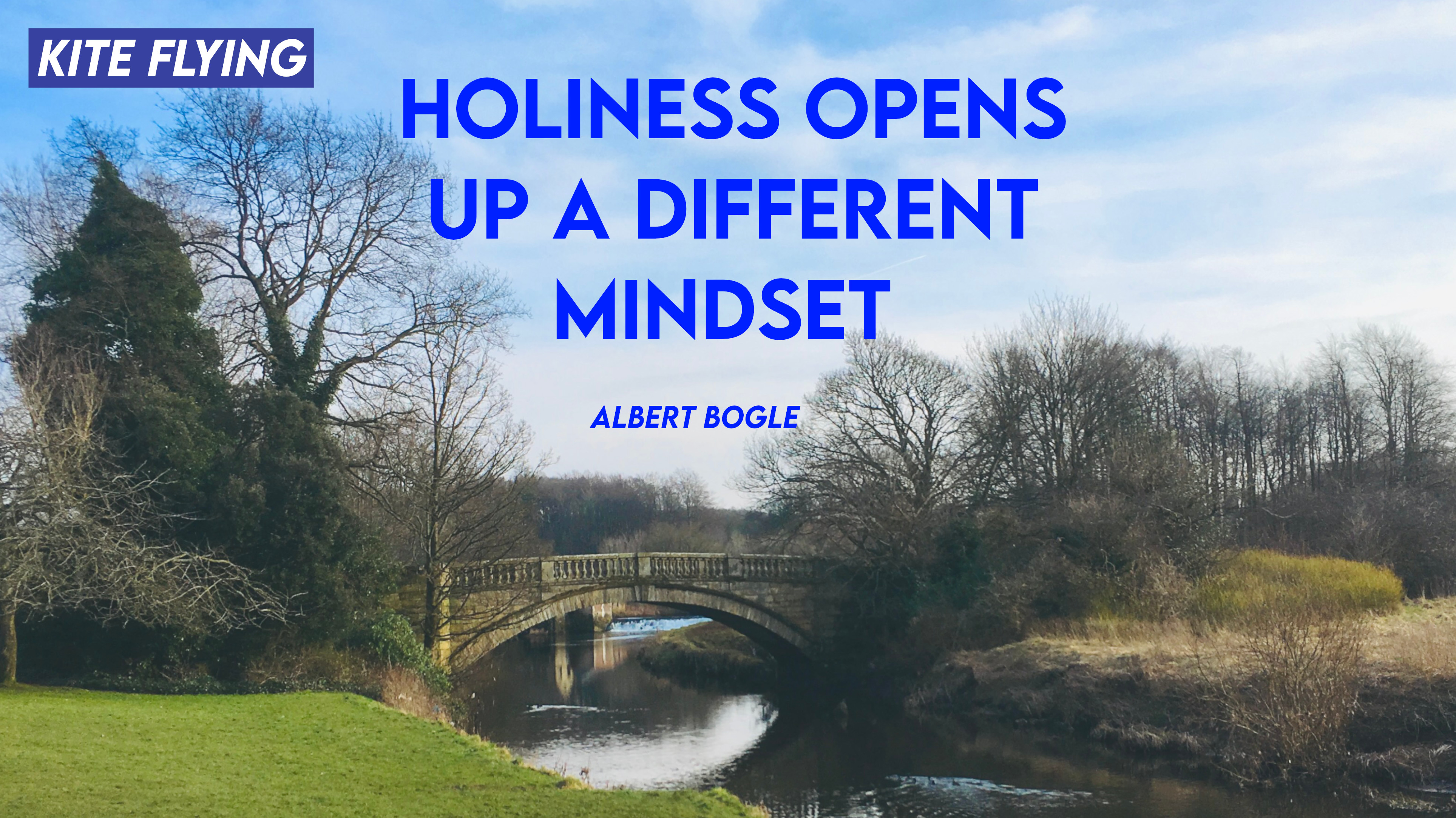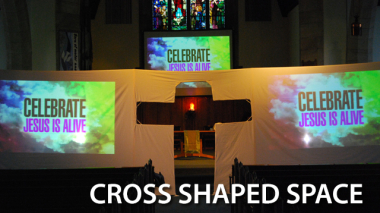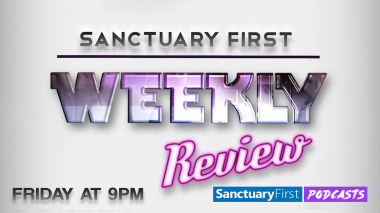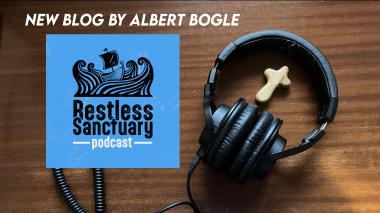Holiness Opens Up A Different Mindset

This post from Albert Bogle is the latest in our Kite Flying series. These articles are a space for us to make and fly wee ‘kites’: ideas that we are currently daydreaming, mulling over or wondering about as we explore what it means to be followers of Jesus in the 2020s.
People of faith are living through pretty challenging times. The rise of radical religious groupings in various parts of the world has brought about a distinct mistrust of religious people. This coupled with the increased number of abuse cases surrounding religious care homes, and other faith based institutions means that for many people religion is a dangerous and destructive pursuit.
An alternative inclusive secularist agenda is gradually being accepted as the norm as some seek to minimise the influence of faith groups in society by removing their place from the public forum. The impending closure of many church buildings now being fast tracked due to the Covid pandemic, means that the public perception of the church will undoubtedly be one of an institution on the wane.
In this article I want to suggest that the time has come for Christians across the denominations to come together and seek a new understanding of what it means to live holy lives. Holiness is a concept that I believe can become the key to opening the door to a greater understanding of what it means to be striving together to seek the unity of the people of God. Our common desire to be holy, or ‘complete people in Christ,’ should be sufficient to inspire us all to consider the missional impact of living holy lives in a secular world that is longing for unity of purpose and the security of the planet.
Questions surrounding equality and justice have caused both Christians and secularists alike to question and reform what have been recognised moral stances for centuries. In doing so, or by even engaging with those who would seek to re-define ethical attitudes in the light of scientific research or an alternative biblical interpretation, some find themselves caught in the crosscurrents of an unsettled sea with no safe harbour in sight. Others are describing our current political and theological debate as like that of a tsunami. We are in the midst of a turmoil. When it is over the landscape will never be the same again.
When the tide is on the turn, currents can run in both directions at the same time. It may not be clear to a casual observer which direction is dominant. When there is lack of certainty that is the time when people feel insecure and anxious. It is for such a time as this that we are reminded of our calling to be holy.
The much bigger question for the church today is how do we remain faithful to the teachings of Jesus — seek the common good of society — without letting the present secular culture ‘squeeze you into its own mould’ the latter being a quote from J.B. Phillips’ Romans 12.
A number of Christians have felt that the present day cultural norms have influenced church life too much; to the extent that they have established or joined an alternative fellowship, only to realise that divisions are seldom the solutions to moral dilemmas and within the new fellowship differing opinions arise.
Friendships within our churches have been under great stress in the past few years. Positions have been taken up and for many the hurts run deep and walls of division have been built. Finding a way to break these walls down in order to discover reconciliation will be difficult. However I believe we must begin to try.
I’d like to pose this question. Is it possible for a person of conviction to hold to a position without necessarily demonising those who hold a different view? Paul seems to suggest this is possible writing to the the Philippians in Chapter 3:16. He also takes this theme up in Romans 12: 9-21. Our challenge is, can we live at peace with each other and agree to differ on some issues.
If we are to be obedient to Christ's call for unity in John 17, I am suggesting that understanding the call to holiness may open a new door and allow new light to be shed abroad in all our hearts.
I believe a renewed understanding of holiness in the church could be the one thing that keeps us all united in the face of a changing cultural ethical landscape. Holiness may help us define the purpose and meaning of our future as Christian communities while we live in the crosscurrents.
From politics to the business world, from the business world to the world of faith, it seems to me that people are questioning many of the long held principles of what might be described as “societal norms”. Indeed the question that Pilate asked Jesus remains in currency today “What is truth?” This search for truth needs to be openly acknowledged by all in the church.
Those of us who believe we have a duty to hold to the historic truths of the church, may require to exercise a generosity towards those who take differing interpretations from what we might hold to be scriptural. Indeed patience needs to be exercised by all before heading into long sterile debates.
I’m aware of a growing number of Christian people who have stopped attending church because for them what is being talked about and modelled in many of our churches is far removed from their everyday experience and the things about which they were once passionate. For them their truth has led them out of church.
The disturbing thing is that many of these Christians were at one time leaders within their church. Some of them are now what could be described as believers in search of their emerging homeland.
When you speak to this group of people they don’t seem to have lost their passion for the teachings of Jesus, somehow they have become disconnected from organised religion. They will turn up at festivals and events that have a vaguely Christian connection but for the rest of the time they sustain themselves through personal Bible reading and prayer, academic reading, films, book clubs and the occasional social evening mixing with others who once were part of the organised “Christian Club” we call Sunday Worship.
When you examine the reasons behind their unease it often stems from a changing perception of what they once thought to be an undeniable truth. What we and they are experiencing is a revolt against a simplistic approach to church that seeks to equate spiritual growth and passion with an unthinking approach to scripture and an unwavering loyalty to any kind of authority that demands a conformity of thought. Often this group of people don’t realise that there are many people like themselves who live within the community of the church living through these tensions.
The great challenge for the church in mission and worship today is to go beyond mimicking the techno gismo culture of the post modern 21st century and begin to connect with the real issues that are at the heart of the human condition. The longing for community, the need to be forgiven, coupled with a passion for equality and fairness. These issues of course are at the heart of the Gospel, which in turn speaks to the loneliness and alienation which has become the hallmark of our western civilisation.
It also means that we need to think more deeply about what it means to live in tension. Discovering faith in Jesus Christ is seldom an instant encounter, many talk of it as a journey. This journey will involve us all asking questions and receiving partial answers and perhaps from time to time living with conflicting answers. While experiencing this kind of journey one can feel a certain amount of stress.
We need to understand the difference between being in stress and under stress. The former is to experience the healthy stress that holds a bridge up, the latter is to understand the effects of being continually under stress until you reach breaking point.
I think we should regard what I have just described as being the healthy stress that holds the bridge up.
I would like to see within all our churches a greater willingness to explore what it means to live in this tension.
Holiness is an ontological word, it describes the very nature and being of God, it describes his identity. Now it is the work of the Holy Spirit to shape us into the likeness of God our Father’s identity.
The scripture teaches us that we are being made holy, by the presence of the Spirit at work in our lives. This means we are not instantly holy; holiness is a process through which we grow in grace and find ourselves being grafted and moulded into the body of Christ.
When Jesus calls us to follow him he invites us to become like little children. He invites us to be disciples to be learners, to be willing to become that which we are not yet. He calls us to become holy.
I believe when the Holy Spirit begins to work in the life of a man or a woman a boy or a girl he does so from before we were born. He is at work changing us from glory into glory so that one day we will be reflected images of his amazing glory.
All this means that we need to have a doctrine of the church that allows us to live in tension, to rebuke each other when it is necessary and to also encourage and inspire one another: so that we may all attain the full stature of Christ. This kind of iron sharpening iron, can only happen when we are confident that we belong to each other, that we are covenanted to each other.
My plea is that we leave room in the church for all who wish to be followers of Christ who in the words of the Church of England 1662 Communion Liturgy “earnestly repent of their sins and wish to live in charity with their neighbours according to his commands,” such people must “draw near and take this sacrament to their comfort.”
One more thing, it is the Spirit of God that reveals to us our sins. When the Spirit shines his light into the darkness of all our hearts all we can do is cry “Abba Father”.
So in answer to my question, yes I do believe it is possible to be passionate and convincing about what we believe. I think, the first element in bringing about a holy mindset in another is having a generous spirit towards those who may think differently.
Very Rev Albert Bogle




 Add to Favourites
Add to Favourites







Login to comment.